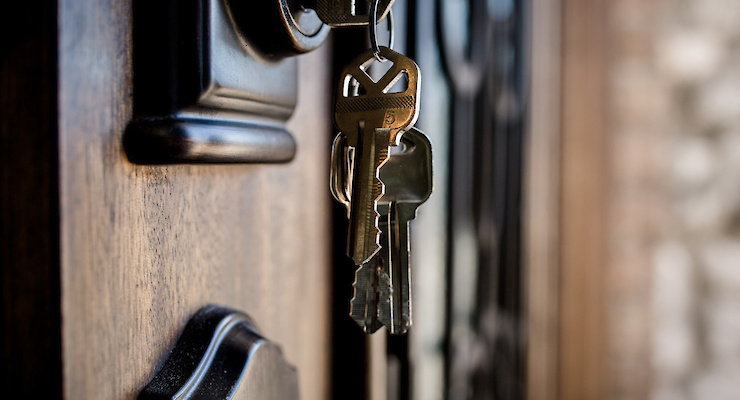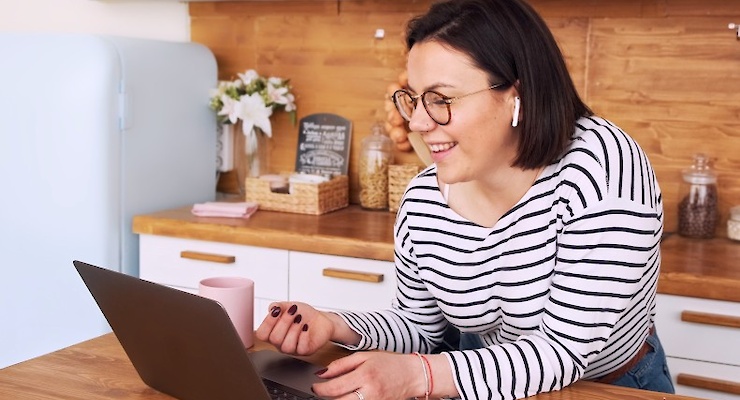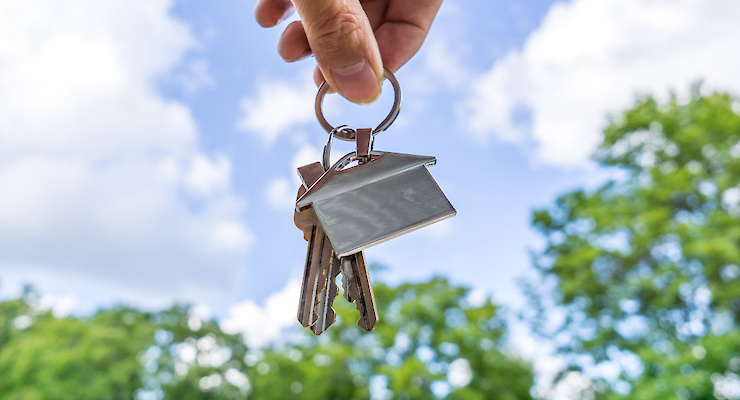


Head of Content

Mortgage Advisor & Director
How to get on the property ladder: The Teito guide
It's not an easy task to get onto the property ladder, but with a little knowledge and help from this guide, you may be able to find your way up. We have compiled useful information about what it takes to buy a house and how to make sure that you are making sensible decisions as you go. You will learn about mortgages, deposits and all of the other steps required to buy your first home.
You will also learn about the legalities of buying a house, and you can take comfort in knowing that there are professionals out there to help guide you every step of the way.
In this guide, you will:
- Learn what lenders are looking for in a mortgage applicant.
- Find out how to be approved for a mortgage even if you don't have the perfect credit score.
- Discover ways that can help with saving up for your deposit.
- Learn some advice for buying a house that will help you to save money in the long term.
What does it mean to "get on the property ladder"?

"To get on the property ladder" means buying your first home or apartment of your own. It's quite an accomplishment and one that usually requires careful planning for how you'll pay your mortgage as well as saving up enough money for any other fees involved such as solicitors, moving fees, house insurance and more.
What are some common misconceptions about getting on the property ladder?
Some common misconceptions about getting on the property ladder are:
- You need an enormous amount of money for a deposit. This is untrue for most people as there are various government schemes and flexible mortgage options available that can make the process easier.
- You need to have the perfect credit score to get approved for a mortgage. This is not true, and how lenders view credit issues can vary wildly depending on the situation.
- It is too difficult to get a mortgage. This can sometimes be true, but it's not an impossible task. We'll help you to understand what lenders are looking for in an applicant so that getting approval won't be hard, even if you don't have the perfect credit history.
- You need to have a high income in order for your mortgage payments to be manageable. This is untrue as many people on low incomes are able to afford their monthly mortgage payments, which in many cases are lower than rental payments.
How much does it cost?
The total costs of purchasing your first home depend on many factors, but there are plenty of calculators out there which can give you an idea of what owning your own place would be like from a financial standpoint.
Some of the costs involved in getting on the property ladder include:
- Your deposit - this is the most significant expense for most first time buyers.
- Mortgage fees - there are various types of mortgages with different arrangement fees and interest rates, so be sure to do your research and find the best option for you.
- Legal fees - in most cases, you will need to pay a conveyancing solicitor for the legal work involved in buying your first home.
- Moving costs - if you are moving from a rental property, do some research to see how much it would cost for removal companies or hiring transport yourself.
- Household goods - this includes anything from sofas to cutlery which is needed for your new home.
You may find that it's a bit more than you expected, but with careful planning and some of the tips mentioned in this guide, getting your own place should become easier.
What's involved in getting on the property ladder?

The first thing to do is to find out if owning your own home is an option for you.
At Teito, we offer mortgage advice and information about how to get started, what criteria are necessary, such as income, credit history, and more.
There are many things that need to be considered when getting on the property ladder so it can help you make informed decisions as you go along. Ideally, you'll have a stable income and a decent credit history, although there are exceptions to these rules.
Assuming you're getting a mortgage to buy your first home, you'll need to work out your budget.
Take a look at property prices in the area you're considering and see what it would take for you to get a suitable property. From there, you'll be able to make an assessment when it comes to a deposit and use one of the many online calculators (ours is pretty good!) to calculate the value of the mortgage you'll need and what that broadly means in terms of monthly repayments. Note that your actual repayments will vary based on your mortgage offer - taking into account the term (number of years the mortgage is spread over) and the interest rate you've been offered.
You will need to find a solicitor and an estate agent who can help you through the process of buying the house or apartment that's right for you, as well as a mortgage broker to get you the best deal. It is then just a matter of waiting until it comes up on the market, making sure that this is in line with what you're looking for, submitting all relevant documents to the lender, and waiting for your approval. Your lender will review the application once they receive it, along with any supporting documents that go into your credit history or income level.
At Teito, our online mortgage service takes care of all the hassle of paperwork, so you don't have to! We work with hundreds of lenders, including those who specialise in first-time buyers and will find the mortgage deal that is right for you.
Start comparing deals online now and you could have a mortgage in principle in minutes!
What about a deposit?
Typically in the UK, house deposits for first-time buyers are around 10-15% of the price of the property (although there are 5% deposit options) and can be anywhere from £5000 - £30,000 depending on where you are looking in terms of location.
If you think that saving this much for a deposit is out of reach, then it may be helpful for you to see if there are other options available such as the government help to buy schemes or shared ownership properties. These might just help get you on the property ladder.
Will I need a mortgage in principle before starting my search?
While a mortgage in principle is not a strict requirement before starting your home search, it helps to show estate agents and vendors that you're a serious buyer.
Getting an offer accepted on the home of your dreams can be a competitive environment, so having a mortgage in principle can help you stand out from the crowd. It also means that when you're ready to progress, the formal application can begin quickly and you'll be able to get the ball rolling.

Get your mortgage in principle certificate in 5 minutes
What does a mortgage advisor do?

A mortgage advisor's role is to find you the best deal for your needs and circumstances.
They will work with you on a one-to-one basis, offering advice about what type of homeownership would be most suitable for your situation and give guidance on how much you can afford given your income levels or other factors such as existing debt.
There are three broad types of mortgage advisor:
- Tied mortgage advisors offer mortgages from a single mortgage lender.
- Multi-tied mortgage advisors can only offer deals from a particular group of lenders.
- Whole-of-market mortgage advisors can access all the available mortgage deals on the market as they are not tied to any lender. They offer independent mortgage advice and search the market to find the right mortgage for their clients, depending on their situation.
At Teito, we are a whole-of-market service, which means that we offer a range of mortgage deals and provide independent advice. We work with hundreds of lenders, including those who specialise in first-time buyers, so you can be sure to find the one that's right for you!
What does a conveyancer do?
A conveyancer is an expert who specialises in the legal aspects of buying and selling property. They'll help you through the process by ensuring that everything runs smoothly from start to finish, including all paperwork relating to your ownership and deeds on the property as well as any necessary administration. There are a number of duties they will undertake on your behalf, which includes checking that the title deeds and any other legal documents relating to the property have been completed correctly.
Conveyancing is one part of getting onto the property ladder that you won't want to skip over - it can help ensure peace of mind. If possible, try and get a conveyancer who specialises in first-time buyers as they will know the best practices and how to make your life easier.
Will I need to pay Stamp Duty?
The government has seen that there's been an increase in demand from those who want homes but cannot afford them due to rising prices. This is why there are different options available to help first-time buyers, such as the government's help to buy and mortgage guarantee schemes.
First-time buyers buying in England, Wales and Northern Ireland are eligible for relief on the Stamp Duty Land Tax.
In order to qualify as a first-time buyer, you must not have purchased or owned any residential property in your lifetime, and intend to use the property you're buying exclusively as your main residence. The cost of SDLT depends largely on how much you are purchasing your home for - see our complete guide to stamp duty to find out how much your bill will be and whether you qualify for first-time buyer relief.
Some important questions to ask yourself when buying your first home

- What kind of property would you like to live in? This will help you decide where to look when looking for a house.
- What's your income? This will have an impact on how much money you can borrow from a lender and what kind of property it might be possible for you to afford.
- What is your budget? You'll want to consider how much you can afford each month in mortgage payments.
- Do you expect to move within the next five years? If so, it could be more cost-effective to rent rather than buy once you take into account the costs of moving.
- What are your needs when it comes to a home? (How many bedrooms do you need? Do you need a garden?)
- How much of a deposit can you afford and when will that be ready (for example: if it needs saving up)?
- Is there any other help available such as the mortgage guarantee, help to buy, or shared ownership schemes?
- What's your credit score? This will have an impact on the amount of interest you'll need to pay and how easy or difficult it will be to get approved for a mortgage.
- Have you accounted for any other costs associated with buying a house, such as solicitors and house insurance?
These are all important things to consider when getting on the property ladder. You'll want to make sure that you have all the information and knowledge necessary in order to be able to navigate this process with ease.
What government schemes are there for first-time buyers?
There are a few ways that the government can help you can purchase your own home and make sure it's within your reach.
- Help to buy - this scheme is available for first-time buyers in England, Wales and Northern Ireland and allows people to buy new-build homes with a five per cent deposit.
- Mortgage guarantee - open to first-time buyers and homeowners alike, this scheme is for people who have a small deposit and might be struggling to get on the property ladder.
- Shared ownership properties - there are some housing associations that offer shared ownership schemes where tenants can buy part-ownership in a property with, for example, a 25% equity share. This is usually combined with affordable rent from local authorities or housing associations.
- Right to buy and right to acquire - these schemes are designed to help tenants who live in council houses get on the property ladder.
Start comparing mortgage deals now and get on the property ladder!

Buying a home is one of the most important financial purchases you'll ever make, so it's worth making sure you understand all of the options available to you.
Teito offers online mortgage advice and is a great place to start when you're looking for the best rates and deals. You'll need your monthly budget, how much deposit you have available and what type of property it's going towards - all these factors will help us determine which mortgage could suit your needs. Once we know more about your circumstances, one of our experts can give you advice on finding the right deal based on your personal situation.
As a truly independent service, we work with hundreds of lenders - this means that we can find the best deals and offer impartial advice.
If you're applying for a mortgage with Teito, not only will we find the right deal for your situation, but our online application process is straightforward and doesn't involve any paperwork.
We'll compare your different mortgage options, show you how much each one will cost you per month in repayments and help to answer any remaining questions. There are so many factors involved here, but our experts have dealt with these types of queries hundreds of times before: they know exactly what information lenders need from you, and they're able to help you make the right decision.
Get started now and you could get a mortgage in principle in minutes!
Choosing an Adviser
Selecting a qualified and experienced mortgage adviser is of great importance. To choose a suitable adviser, evaluate their qualifications, experience, and reputation, and ensure they are regulated by the Financial Conduct Authority (FCA).
Read reviews from previous clients and make sure they provide a clear explanation of the products and services they offer, as well as the fees and charges associated with them.
























































































































































